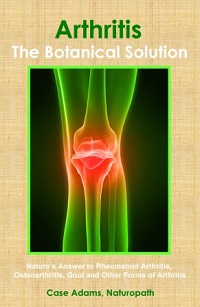WHO: Antibiotics Losing Effectiveness
For decades we’ve relied on antibiotics to protect us from infections. Those days are waning, as research is proving that our antibiotics are becoming weaker and are losing their effectiveness in fighting bacteria infections.
WHO antibiotic announcement
In 2016, Director General of the World Health Organization Dr. Margaret Chan announced that due to bacteria becoming increasingly resistant, nearly all antibiotics, even those used for treating tuberculosis and malaria, are quickly becoming useless.
Dr. Chan was a keynote speaker at a Copenhagen medical conference on Wednesday. She sounded the alarm, saying, “we are losing our first-line antimicrobials. Replacement treatments are more costly, more toxic, need much longer durations of treatment, and may require treatment in intensive care units.”
This, Dr. Chan announced, could bring about “the end of modern medicine as we know it.”
Dr. Chan and other medical experts are seeing overwhelming infection rates from pathogens that were previously treated by antibiotics. Now they are becoming resistant to antibiotics, leaving fewer resources to fight infections. “Hospitals have become hotbeds for highly-resistant pathogens, increasing the risk that hospitalization kills instead of cures,” she said.
An example is methicillin-resistant Staphylococcus aureus, which has become increasingly prevalent, sometimes causing lethal infections from a simple cut or scrape. Other increasingly resistant bacteria include tuberculosis, salmonella, E. coli, and gonorrhea.
These and other bacteria are increasingly antibiotic-resistant around the world according to other research. And superbugs resistant to all antibiotics are now spreading in the U.S.
Dr. Chan characterized treating new antibiotic resistant tuberculosis strains as “extremely complicated, typically requiring two years of medication with toxic and expensive medicines, some of which are in constant short supply. Even with the best of care, only slightly more than 50 percent of these patients will be cured.”
“Some experts say we are moving back to the pre-antibiotic era,” she added. “No. This will be a post-antibiotic era. In terms of new replacement antibiotics, the pipeline is virtually dry. A post-antibiotic era means, in effect, an end to modern medicine as we know it. Things as common as strep throat or a child’s scratched knee could once again kill.”
There are also other reasons why antibiotics should be used sparingly. For example, research has found that children given antibiotics early in life have a higher risk of obesity later on.
A static weapon against bacteria
Two decades of antibiotic research indicates that antibiotics present a static (one-off) weapon that bacteria can figure out after repeated exposures. Once they figure out how to resist the antibiotic, they pass this knowledge on to other bacteria.
Probiotics, however, produce an array of antibiotic chemicals, and they can adjust and strengthen their weaponry to combat resistance. Dr. Chan doesn’t seem to be aware of the significant findings on probiotics over the past two decades of research.
Probiotics and bacteria have been battling for territory for millions of years. Because probiotics are living organisms, they have the ability to alter their attacks, rather than offer one static weapon. This is why humans have survived for thousands of years.
Laboratory and clinical research has shown that probiotics produce an array of antibiotics, and they can adjust them as pathogenic bacteria can become resistant.
This is no different than any other organism needing to protect their territory. We simply need to understand how to employ probiotics correctly. After all, our species survived for millions of years before there were antibiotics. Surely antibiotics have been helpful. But now we must employ smarter weapons against bacteria infections. If we don’t do this, we’ll soon have few if any defenses against antibiotic-resistant superbugs.
Learn more about utilizing probiotics to fight infection:



















